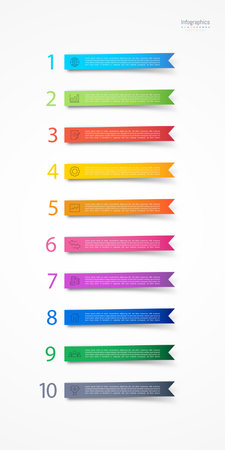Introduction to Astrological Houses in British Astrology
In the realm of astrology, the twelve houses form a foundational framework for understanding both individual character and interpersonal dynamics. Among British astrologers, there is a longstanding tradition of interpreting these astrological houses with a particular emphasis on their influence in relationships. The British approach often blends classical wisdom with modern sensibilities, viewing each house as a unique domain that reflects specific facets of life—including love, partnership, family, and shared values. When examining relationship compatibility, British astrologers pay close attention to how planets and signs interact within these houses, believing that such placements reveal both opportunities for harmony and potential sources of friction. The houses are not merely abstract divisions but are seen as living arenas where the drama of human connection unfolds, making them indispensable tools in the nuanced art of relationship analysis.
2. Key Relationship Houses: The 5th, 7th, and 8th
When it comes to understanding relationship compatibility through the lens of astrology, British astrologers often place special emphasis on three pivotal houses within the birth chart: the 5th, 7th, and 8th. These houses are regarded as the primary arenas where matters of romance, partnership, and profound emotional bonds are played out. Each house brings its own distinct flavour and significance, deeply rooted in traditional astrological teachings that have long been respected across the UK.
The 5th House: Romance and Courtship
In British astrological tradition, the 5th house is affectionately dubbed ‘the House of Pleasure’. It governs romantic encounters, flirtation, creativity, and the joys associated with new love. Astrologers here observe that planetary placements or synastry connections involving the 5th house often signal a relationship filled with fun, youthful energy, and genuine affection. This house also highlights one’s approach to dating—whether playfully light-hearted or dramatically passionate.
The 7th House: Committed Partnerships
Often referred to as ‘the House of Marriage’ by British astrologers, the 7th house takes centre stage in all discussions of lasting unions and legal partnerships. Its influence extends beyond marriage into any formal partnership, including business alliances. Compatibility analysis frequently involves examining which planets occupy or aspect the 7th house in both charts. In many British readings, emphasis is placed on how well partners complement each other’s strengths and needs within this domain.
The 8th House: Intimacy and Transformation
The 8th house is perhaps the most enigmatic of the relationship houses. In UK astrological circles, it is seen as governing sexual intimacy, shared resources, and deep psychological merging. British astrologers highlight that strong 8th-house ties between two charts can indicate transformative relationships—those that challenge individuals to grow and confront their innermost fears or desires together.
A Comparative Glance at Key Relationship Houses
| House | Main Focus | British Astrological Insights |
|---|---|---|
| 5th House | Romance & Courtship | Represents joy in love affairs; indicates creative ways partners connect and express affection. |
| 7th House | Marriage & Partnership | Highlights commitment; shows qualities sought in a life partner and potential for lasting unions. |
| 8th House | Intimacy & Shared Resources | Reveals depth of emotional bonding; linked to transformation through shared experiences. |
Cultural Nuances in Interpretation
British astrologers tend to approach these houses with a blend of tradition and practical wisdom. They often encourage individuals not just to seek compatibility but also to appreciate the unique lessons each relationship brings—whether it’s a fleeting romance under the 5th house or a soul-deep union reflected by the 8th. This balanced perspective helps seekers understand not only whom they are drawn to but also how they might grow together over time within a distinctly British cultural context.

3. House Overlays in Synastry: Intersections of Individual Charts
When exploring relationship compatibility through the lens of British astrology, house overlays in synastry—where one person’s planets fall into specific houses of their partner’s birth chart—are considered a vital component. British astrologers often regard these overlays as revealing the subtle ways individuals experience each other, going beyond mere sun sign matches to reveal the nuanced interplay of personalities and emotional needs.
In traditional British practice, particular attention is paid to how personal planets (such as the Sun, Moon, Venus, and Mars) activate certain houses in a partner’s chart. For example, when a partner’s Venus lands in your seventh house of partnerships, it may indicate immediate rapport and mutual attraction. This alignment is often interpreted as a sign of natural affinity—a sense that both parties easily understand each other’s approach to relationships and commitment.
British astrologers also note the importance of emotional resonance created when the Moon or other sensitive points overlay intimate houses such as the fourth (home and family) or eighth (shared resources and transformation). These placements often foster deep bonds, with a distinctive British appreciation for understated emotional security and loyalty. Such connections frequently underpin long-lasting partnerships, reflecting traditional values held dear in UK astrological circles.
It is not uncommon for British practitioners to highlight the practical implications of these overlays. For instance, if your partner’s Mercury falls into your third house of communication, you might find conversation flows effortlessly—mirroring the classic British emphasis on wit and good conversation as hallmarks of compatibility.
In summary, house overlays in synastry provide British astrologers with a sophisticated tool for examining how two individuals relate at an experiential level. Rather than relying solely on planetary aspects, this approach acknowledges the lived experience within a relationship, offering insight into how daily interactions unfold and emotional connections are forged in a uniquely British context.
4. Cultural Nuances: British Perspectives on Love and Compatibility
British astrologers have long cultivated a distinctive approach to the interpretation of astrological houses, particularly in matters of love and compatibility. The British temperament, characterised by reserve, subtlety, and a fondness for tradition, shapes the way houses are read in natal and synastry charts. Rather than seeking flamboyant expressions of romance or dramatic compatibility markers, British practitioners often place greater emphasis on understated harmonies and stable foundations between partners. This attitude is reflected in their nuanced analysis of the 7th House (Partnerships), 4th House (Home Life), and even the 11th House (Friendship), all seen through a uniquely local lens.
A key aspect of British interpretation is the appreciation for gradual relationship development—compatibility is not merely about instant attraction but about enduring qualities such as loyalty, discretion, and shared values. Astrologers from the UK frequently counsel clients to look beyond superficial placements; they highlight how certain house overlays can signal lasting companionship or indicate challenges rooted in cultural expectations.
The British Approach to Key Houses in Relationship Astrology
| House | Traditional Significance | British Interpretation |
|---|---|---|
| 7th House | Marriage & Partnerships | Focus on mutual respect, reliability, and understated affection rather than overt passion |
| 4th House | Home & Family | Stability, shared domestic values, and emotional security prioritised |
| 5th House | Romance & Pleasure | Cautious enjoyment of courtship rituals; importance placed on sincerity over spectacle |
| 11th House | Friendship & Social Circles | Strong emphasis on camaraderie as a foundation for romantic partnership |
This careful approach also acknowledges the influence of Britain’s social history—class distinctions, reserved manners, and the value placed on privacy all subtly inform how relationship dynamics are interpreted astrologically. A planetary placement or house overlay that might suggest drama elsewhere could be viewed by a British astrologer as an opportunity for quiet growth or respectful negotiation.
The Value of Discretion and Tradition
In consultations, many British astrologers stress the importance of discretion and respect for personal boundaries. They encourage individuals to honour their partner’s need for space (often indicated by placements in the 12th or 8th Houses) while recognising that true compatibility grows from shared experience rather than public display. Thus, the art of interpreting astrological houses in Britain remains deeply intertwined with national character—a blend of old-world wisdom, gentle humour, and a steadfast belief in love’s quiet endurance.
5. Classical Versus Modern: Shifts in House Interpretation
British astrology, steeped in centuries of tradition, has witnessed a remarkable evolution in the interpretation of astrological houses—particularly when it comes to relationship compatibility. In classical British astrology, house meanings were often viewed through a lens of fixed roles and societal expectations. The seventh house was strictly the domain of marriage and legal partnerships; the fifth concerned courtship and romantic pleasures; the eleventh signified friendships and social alliances. British astrologers of old would meticulously assess the condition of these houses, focusing on planetary rulers, dignities, and essential aspects to make pronouncements about marital harmony or discord.
However, as British society itself has transformed, so too have astrological interpretations. Contemporary British astrologers embrace a more nuanced and psychologically informed approach. While the seventh house remains pivotal for assessing long-term commitment, modern analysis gives greater weight to individual needs, emotional intelligence, and personal growth within relationships. The interplay between the fifth and eighth houses is now explored not just for passion or intimacy but also for how lovers empower—or challenge—each others sense of self.
This shift reflects broader cultural changes across Britain. Where once arranged marriages or familial expectations dominated, todays relationships are more likely to be based on mutual understanding and shared values. Modern British astrologers consider not only traditional planetary placements but also outer planets such as Uranus or Pluto when interpreting relationship dynamics—a practice seldom found in classical readings.
Ultimately, the distinction between classical and modern house analysis lies in emphasis. Traditionalists may caution against disregarding established rules, yet contemporary practitioners encourage clients to seek meaning tailored to their unique circumstances. Both approaches offer valuable insights, reminding us that while the stars remain constant above Britain’s skies, our interpretations continue to evolve with the times.
6. Insights from Leading British Astrologers
When it comes to the practical application of astrological houses in understanding relationship compatibility, leading British astrologers provide nuanced and deeply considered perspectives. Renowned astrologer Deborah Morgan, based in London, notes, “While sun signs often capture the popular imagination, it is the houses that reveal where a relationship will unfold—whether in shared values, communication, or even day-to-day routines.” This view is echoed by Manchester’s celebrated practitioner, Simon Fielding, who emphasises the importance of overlaying one partner’s planets onto the other’s natal houses. He says, “A partner’s Venus falling in your fifth house can indicate not just romance but also a genuine sense of play and creativity together—a delight that often makes relationships thrive.”
Astrologer Alice Hargreaves of Bristol suggests that British cultural values—such as emotional reserve and respect for privacy—can be seen through the lens of the fourth and twelfth houses. She advises clients to pay attention to these areas: “The fourth house speaks to our sense of home and belonging. In Britain, where family roots and personal space are cherished, harmonious planetary placements here can foster a deep sense of security between partners.”
Many UK astrologers also point to the significance of the seventh house in their consultations. As Edinburgh-based expert James McAllister puts it, “The seventh house isn’t just about marriage or long-term partnership; in the British context, it reflects how individuals balance commitment with independence. Understanding this dynamic can help couples navigate expectations shaped by both astrology and cultural norms.”
Together, these insights demonstrate how British astrologers integrate traditional astrological wisdom with an awareness of local attitudes towards relationships. Through careful analysis of house placements and their interplay with planetary energies, they offer practical guidance tailored to the unique fabric of British society.
7. Conclusion: Integrating House Wisdom in Modern British Relationships
In the tapestry of modern British society, where relationships are shaped by both tradition and contemporary values, the wisdom of astrological houses offers a unique lens through which to understand partnership dynamics. British astrologers consistently highlight that beyond sun signs, it is the nuanced interplay of houses—especially the seventh (partnership), fourth (home), and fifth (romance)—that illuminates the deeper currents of compatibility. By considering the houses’ influence, couples and individuals can gain insight into their emotional needs, communication styles, and shared life goals. This ancient framework remains surprisingly relevant, serving as a bridge between time-honoured astrological tradition and the evolving landscape of relationships in Britain today. Embracing house analysis not only enriches self-understanding but also fosters greater empathy and harmony within partnerships. Thus, integrating this aspect of astrology is an invaluable tool for those seeking meaningful connections amidst the complexities of modern British life.

